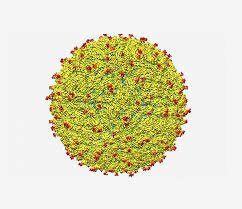ZIKA-VIRUS-NS1 RESPONSIBLE FOR ENTRY IN BRAIN

ZIKA-VIRUS-NS1 RESPONSIBLE FOR ENTRY IN BRAIN
Varanasi: A group of researchers led by Prof. Sunit K Singh, Head, Molecular Biology Unit, Institute of Medical Sciences, Banaras Hindu university, has done excellent work in the area of Zika virus. Prof. Singh is a well-known virologist of the country. His work in the area of different aspects of Virology is well appreciated nationally and internationally.

Zika virus is a mosquito-borne virus, transmitted by Aedes mosquito, the same mosquito which causes dengue, chikungunya and yellow fever virus infection. “Zika virus infection leads to microcephaly in infants. Microcephaly is a condition where the brain size is abnormal or underdeveloped in infants, whereas in adults, the symptoms are mild-fever, head-ache, conjunctivitis, joint-pain, and body rash,” he said adding that the incubation period lasts for 2-7 days.
ZIKA-VIRUS-NS1 RESPONSIBLE FOR ENTRY IN BRAIN
In 2015, the major Zika virus outbreak was reported in Brazil, North America, Pacific and South-east Asia, infecting 1.5 million people and with more than 3,500 microcephaly cases reported in infants. In India, 157 Zika virus positive cases were reported in 2018. Currently, there are no definite antivirals against Zika virus and only symptomatic treatment regime is followed. The vaccines against the Zika Virus is at the different stages of the clinical trial and development.
Prof. Singh explained that the brain is surrounded by a barrier known as blood- brain-barrier, which separates the brain from the peripheral blood circulation of the body. The blood-brain-barrier is formed by brain endothelial cells and these cells are held together by protein named Tight-junction proteins and Adherence junction proteins. If the tight-junction proteins and adherence junction proteins expression decreases, the blood-brain-barrier is compromised and allows the movement of immune cells and other material from the peripheral blood circulation to the brain which damages to the brain resident cells. The Zika virus infected cells secrete a viral protein, NS1, which has been directly co-related with the disease severity in patients.
ZIKA-VIRUS-NS1 RESPONSIBLE FOR ENTRY IN BRAIN
Recently, he reported that Zika virus NS1 protein compromises the integrity of blood-brain- barrier and this may lead to the entry of the Zika virus to the brain and which may further lead to the microcephaly in infants. The study has been published in an internationally peer-reviewed prestigious journal, “Biochimie” in the month of July, 2020.
Prof. Singh told that Zika virus NS1 protein leads to the generation of reactive and other inflammatory conditions affects the development of brain and head size adversely. He said that this research work will be very useful in understanding the intricacies of the molecular pathogenesis of the Zika virus as well as development of the therapeutics.






